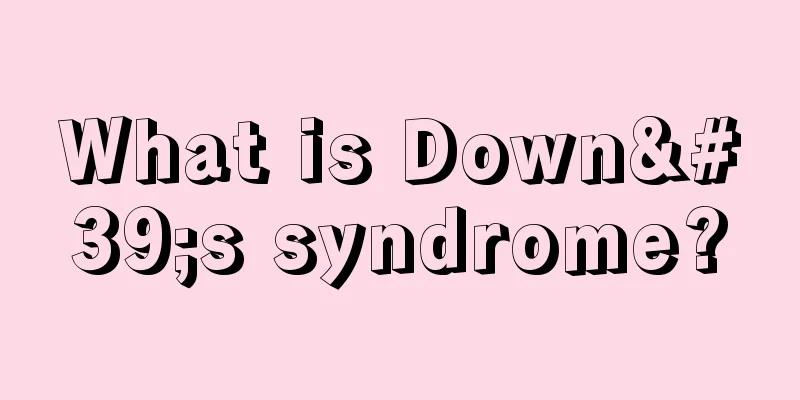Why are the corners of my baby's eyes yellow?

|
Newborn babies are most likely to have various problems because their own resistance is very weak. The baby's health is also the most concerned issue for parents. Many diseases will have some obvious symptoms, and we can use these symptoms to easily identify what disease we have. For example, some babies may have yellow color in the corners of their eyes. This symptom is likely due to jaundice. Let's learn more about this disease. Pathological jaundice should be considered. Please judge it based on clinical manifestations and liver function tests. This situation is mostly physiological jaundice, which can be observed first and generally disappears in about two weeks. If it does not disappear, it is mostly liver and gallbladder abnormalities, which should be diagnosed and treated in time. Distinguish between physiological jaundice and pathological jaundice in newborns: 1. Physiological jaundice
It is related to the characteristics of bilirubin metabolism in newborns, including relatively more bilirubin production; insufficient ability of hepatocytes to absorb bilirubin; poor ability of plasma albumin to bind bilirubin; defective bilirubin excretion capacity; and increased enterohepatic circulation. Therefore, 60% of full-term infants and 80% of premature infants may develop visible jaundice in the first week after birth. 2. Pathological jaundice
1. Excessive production of bilirubin Due to excessive destruction of red blood cells and increased enterohepatic circulation, serum unconjugated bilirubin increases. Common causes include: polycythemia, extravascular hemolysis, alloimmune hemolysis, infection, increased enterohepatic circulation, erythrocyte enzyme deficiency, abnormal erythrocyte morphology, hemoglobinopathy, vitamin E deficiency and hypozincemia. 2. Hepatic bilirubin metabolism disorder Due to the low function of liver cells to absorb and bind bilirubin, the serum unconjugated bilirubin increases. Common causes include: hypoxia and infection, Crigler-Najjar syndrome (congenital uridine diphosphate glucuronyltransferase deficiency), Gilbert syndrome (congenital non-hemolytic unconjugated bilirubinemia), Lucey-Driscoll syndrome (familial transient neonatal jaundice), drugs (such as sulfonamides, salicylates, indomethacin, lanolin, etc.), congenital hypothyroidism, hypopituitarism, trisomy 21 syndrome, etc. 3. Bile excretion disorder Impairment in the excretion of conjugated bilirubin by hepatocytes or obstruction of the bile duct can lead to hyperconjugated bilirubinemia, but if accompanied by impaired hepatocyte function, unconjugated bilirubin may also increase. Common causes include: neonatal hepatitis, congenital metabolic defects, bile duct obstruction, Dubin-Johnson syndrome (congenital non-hemolytic conjugated bilirubinemia), etc. treat: 1. Light therapy It is a simple and effective method to reduce serum unconjugated bilirubin. Unconjugated bilirubin can produce conformational isomers, structural isomers and photooxidation products after exposure to light. Among them, the formation of structural isomers is the most important. It can be quickly excreted from bile and urine without being metabolized by the liver. It is the main reason why phototherapy reduces total serum bilirubin. The most commonly used method in China is blue light irradiation. Place the newborn baby in a phototherapy box, protect both eyes with black eye masks to avoid damaging the retina, cover the perineum and anus with a diaper, and leave the rest of the body exposed. Use single-sided or double-sided light irradiation for 2 to 48 hours (generally not more than 4 days). Continuous or intermittent irradiation can be used until the bilirubin drops below 7 mg/dL and the treatment can be stopped. 2. Exchange blood therapy Exchange transfusion can effectively reduce bilirubin, replace sensitized red blood cells and alleviate anemia. However, blood transfusion requires certain conditions and may also produce some adverse reactions, so the indications should be strictly followed and it is generally used when phototherapy fails. 3. Medication Use drugs to reduce bilirubin production, accelerate bilirubin clearance, or inhibit bilirubin enterohepatic circulation, including supplying albumin, correcting metabolic acidosis, liver enzyme inducers (such as phenobarbital), and intravenous immunoglobulin. 4. Supportive treatment The main thing is to actively prevent and treat hypoxia, hypercapnia, cold injury, hunger, infection, and hyperosmotic drug infusion, prevent temporary opening of the blood-brain barrier, and prevent the occurrence of bilirubin encephalopathy. |
<<: What causes inflammation in babies?
>>: How is umbilical cord formed?
Recommend
What fruits should children eat when they have a cold or cough?
Colds can cause coughs, and prolonged coughing ca...
Diaper rash
Many new parents become very anxious when they fi...
Causes of rapid breathing in newborns
Many parents will find that their newborns have r...
Summary of Children's Cold Medicines
I believe that friends who have babies at home mu...
How to treat blisters on children's feet
Many people think that only people who often need...
What are the ways to control babies from always sucking their fingers?
Babies are seen almost every day. We often see ne...
At what age do children replace their front teeth?
The baby will grow deciduous teeth half a year af...
Can children drink Coca-Cola?
Children's diet is the issue that parents nee...
Treatment measures for eczema in one month old baby
We all know that newborn babies are weak and pron...
What is the cause of the red eye in a child?
We always find that some people have problems wit...
Why does the baby always retching?
Many parents are very worried because their babie...
Treatment of lymphadenitis in children
I believe everyone knows the importance of lymph ...
What is the reason why the baby can’t sleep because of a stuffy nose?
If the baby has a stuffy nose and can't sleep...
What happens when a child has hallucinations?
Hallucinations can occur for many reasons, but mo...
Daily care for fever in baby's palms and soles
The baby is in a developmental stage and may be p...









